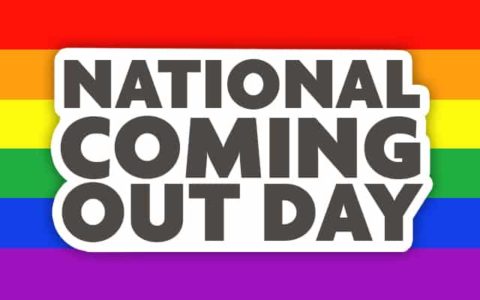National Coming Out Day is a worldwide annual celebration on October 11, and it’s been celebrated since 1988 on the one-year anniversary of the 1987 National March on Washington for Lesbian and Gay Rights. In the 35 years since then, it may seem that Coming Out Day may be a bit antiquated. But the truth of the matter is we need a Coming Out Day more then ever.
Here’s why:
- Coming out is a unique experience for each LGBTQ+ person. It’s not a one-time event. It’s a lifelong process. Many LGBTQ+ individuals who come out to their closest friends and family may later come out at work or school, to their extended family, or to casual acquaintances.
- Talking about coming out and sharing our stories can help to strengthen our community and support one another with this experience. While coming out can be daunting and scary, it can also be the first time that LGBTQ+ individuals are able to be truly open with the people closest to them.
- Over the last few decades since National Coming Out Day was first recognized, we’ve seen huge legal and social progress for the LGBTQ+ community. However, these developments don’t mean that the fight for LGBTQ+ rights is over. Across the globe we continue to see LGBTQ+ people suffer from attacks, hate, and abuse. LGBTQ+ people are still campaigning for laws and attitudes alike to change. For many, coming out can be dangerous – or simply not an option. Coming Out Day reminds us that this fight is far from over.
- For those who are questioning their identities or living in an unwelcoming environment, seeing someone come out – whether it’s on Tik Tok, in your family, a teacher, or your best friend – can offer a feeling of hope, solidarity, and reassurance.
- Most importantly, whether you identify as LGBTQ+ or an ally, celebrating National Coming Out Day is an important way to raise the visibility of our communities and reminds us all of the ongoing struggles LGBTQ+ people face just for being themselves, but also of the joy and pride of being openly LGBTQ+.



